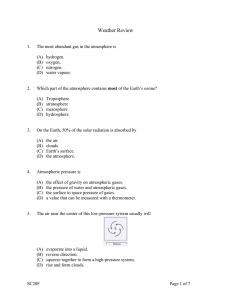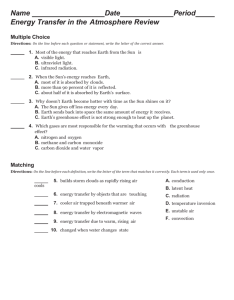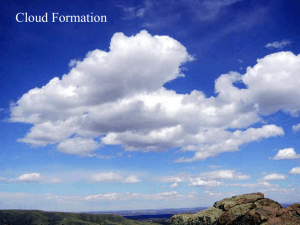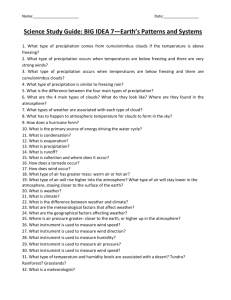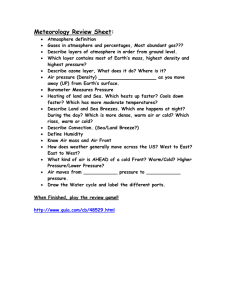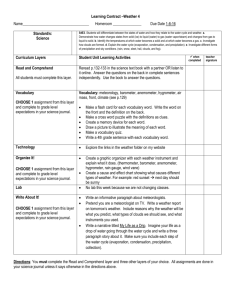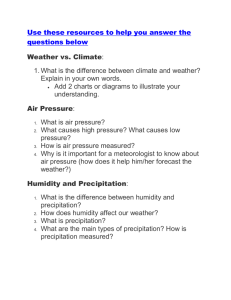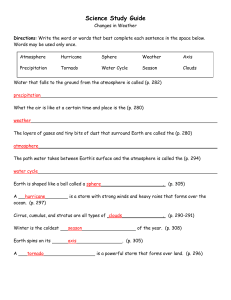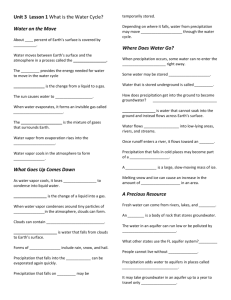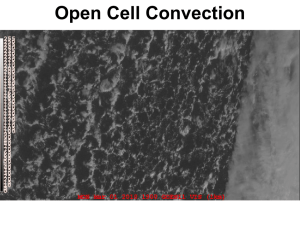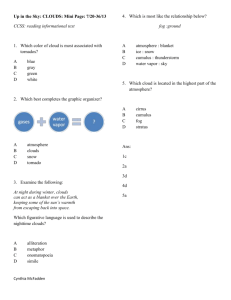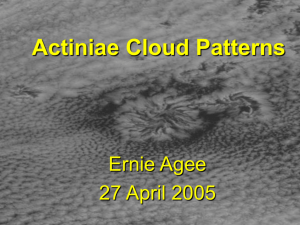Cloud Formation: Mountains, Fronts, Convection, Convergence
advertisement
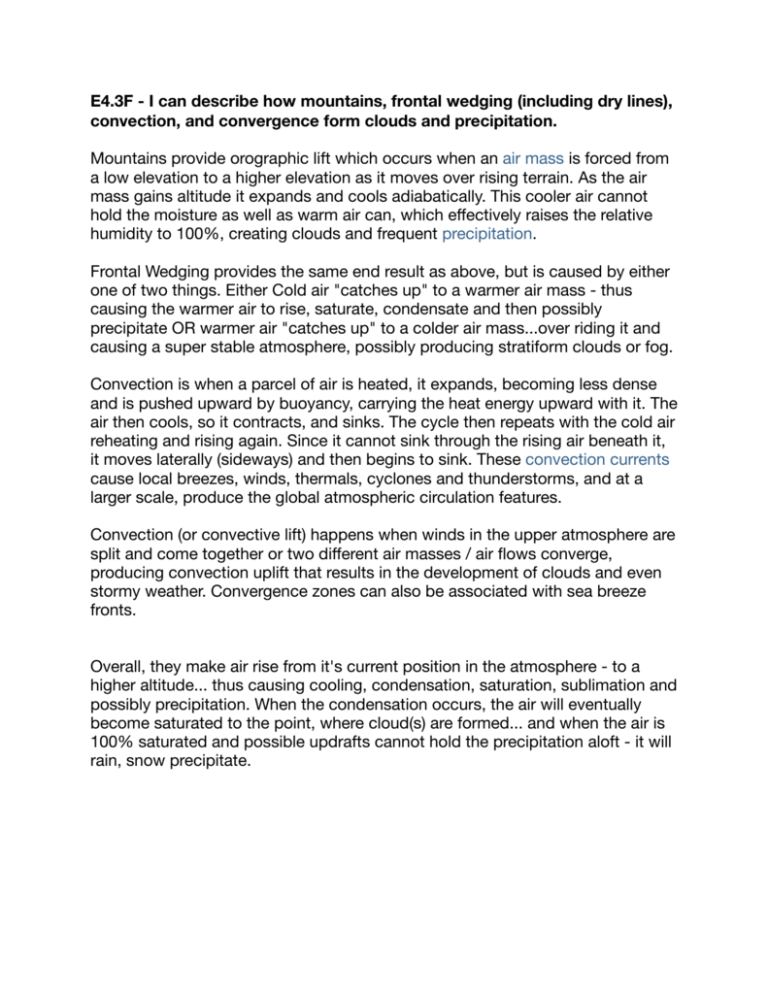
E4.3F - I can describe how mountains, frontal wedging (including dry lines), convection, and convergence form clouds and precipitation. Mountains provide orographic lift which occurs when an air mass is forced from a low elevation to a higher elevation as it moves over rising terrain. As the air mass gains altitude it expands and cools adiabatically. This cooler air cannot hold the moisture as well as warm air can, which effectively raises the relative humidity to 100%, creating clouds and frequent precipitation. Frontal Wedging provides the same end result as above, but is caused by either one of two things. Either Cold air "catches up" to a warmer air mass - thus causing the warmer air to rise, saturate, condensate and then possibly precipitate OR warmer air "catches up" to a colder air mass...over riding it and causing a super stable atmosphere, possibly producing stratiform clouds or fog. Convection is when a parcel of air is heated, it expands, becoming less dense and is pushed upward by buoyancy, carrying the heat energy upward with it. The air then cools, so it contracts, and sinks. The cycle then repeats with the cold air reheating and rising again. Since it cannot sink through the rising air beneath it, it moves laterally (sideways) and then begins to sink. These convection currents cause local breezes, winds, thermals, cyclones and thunderstorms, and at a larger scale, produce the global atmospheric circulation features. Convection (or convective lift) happens when winds in the upper atmosphere are split and come together or two different air masses / air flows converge, producing convection uplift that results in the development of clouds and even stormy weather. Convergence zones can also be associated with sea breeze fronts. Overall, they make air rise from it's current position in the atmosphere - to a higher altitude... thus causing cooling, condensation, saturation, sublimation and possibly precipitation. When the condensation occurs, the air will eventually become saturated to the point, where cloud(s) are formed... and when the air is 100% saturated and possible updrafts cannot hold the precipitation aloft - it will rain, snow precipitate.
